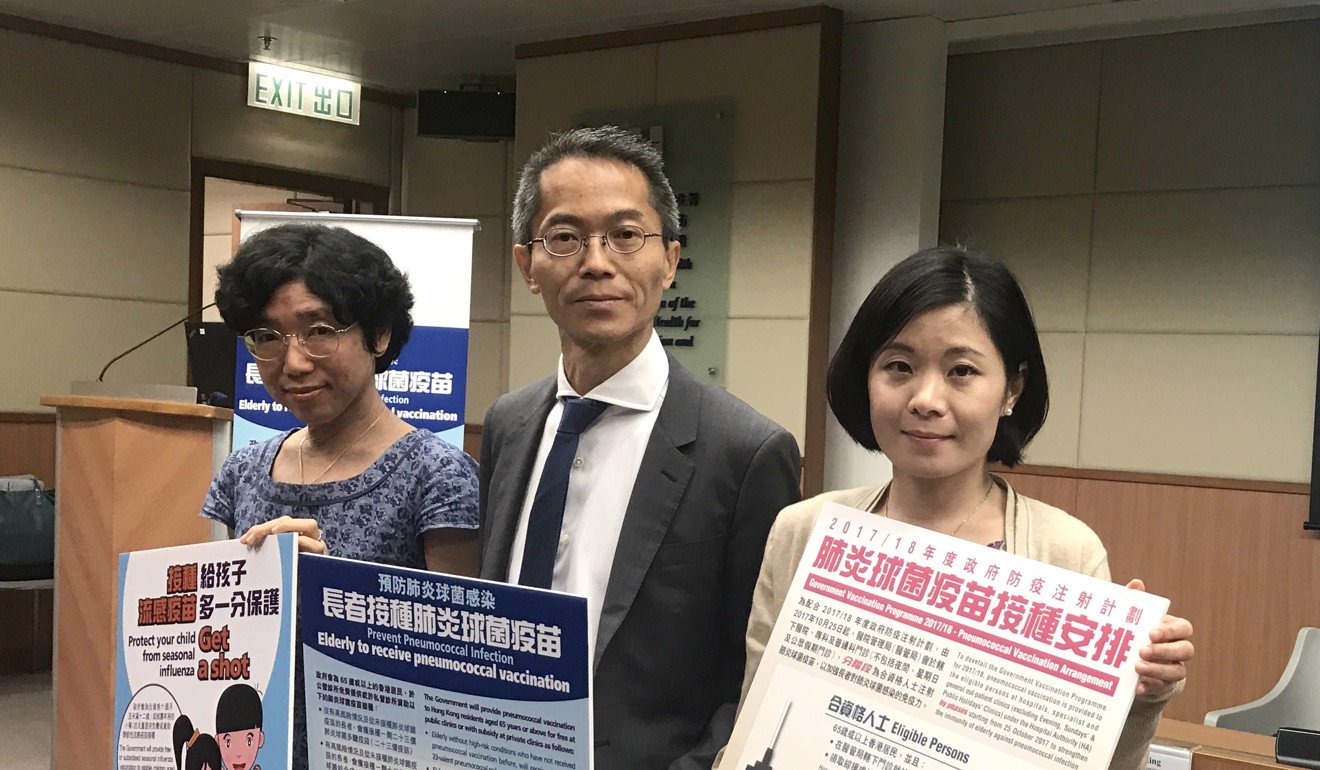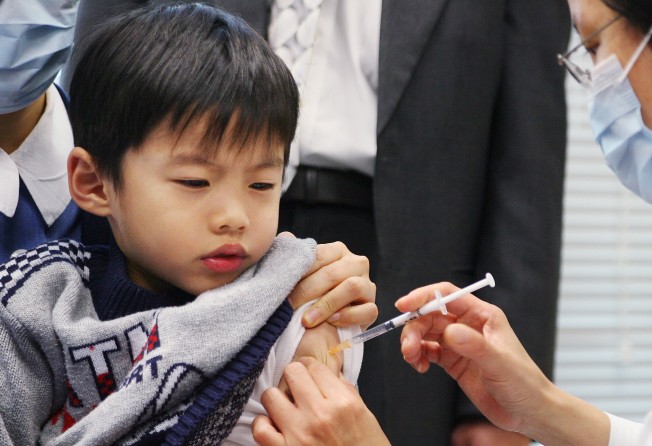
Flu vaccine supply is effective, Hong Kong health officials insist, as they urge public to get shots
Doctors say eligible people should take part in subsidy scheme for pregnant women and elderly

Hong Kong health officials on Tuesday renewed their effort to allay fears over the city’s supply of flu vaccines, saying there was no evidence that the World Health Organisation’s proposed alternative would offer better protection.
Doctors from the Centre for Health Protection urged people eligible for a subsidised vaccination scheme to get the shot when the annual programme kicks off on Wednesday.
The call came amid fears that the city’s vaccine supply would be ineffective against the H3N2 virus. The WHO said last month that it had changed its recommended strain to combat the virus in the southern hemisphere to the Singapore strain – which is different from the Hong Kong strain in the city’s 460,000 doses of vaccine that target the same virus.
“It is incorrect to say now we have a vaccine mismatch,” the centre’s controller Dr Wong Ka-hing said.
“There is no evidence suggesting that the vaccine for the southern hemisphere would provide better protection in the upcoming winter flu season.”

While doctors will not know how effective the vaccine is until flu season arrives early next year, Wong said the shots would still offer some level of protection.
Dr Janice Lo Yee-chi, head of the centre’s Public Health Laboratory Services Branch, said the Singapore strain was chosen by the WHO because a study showed it was “slightly better” than other strains in fighting the H3N2 virus.
But she stressed that the Hong Kong strain and Singapore strain are antigenically similar, meaning there was less of a chance for antigenic drift. Antigenic drift refers to small changes in the genetic code of a virus that happen over time as a result of mutations. It can result in a new strain of virus, against which older antibodies are less effective.
People eligible for the Vaccination Subsidy Scheme, including pregnant women and those 65 or older, will receive HK$190 (US$24) towards the vaccine. The shots will be available at more than 2,000 private clinics.
Another scheme, the Government Vaccination Programme, offers free vaccines to people in need, such as residents at elderly care homes and children between six months and 12 years old from families who receive government assistance. That programme will start on October 25.
Dr Cheng Chi-man, who runs a private family practice, said he had recently received more questions from patients asking about the effectiveness of the vaccines.
But he said the number of people who have signed up for the shot so far is about the same as last year.